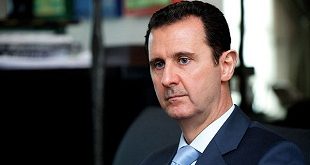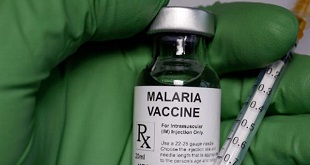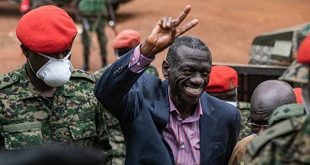
By Angella Abushedde and Haggai Matsiko
Members say Muntu’s 600-day reign has killed the party
On Aug.7, General Mugisha Muntu made exactly one year, eight months and 15 days in office as the Party President for the Forum for Democratic Change (FDC). And, it appears, his strategy is finally becoming clearer; he wants to defeat President Yoweri Museveni at the ballot by stealth. Will it work? Is it, in fact, a strategy or just Muntu’s instinct?
After all, Gen. Muntu is a former guerrilla fighter with Museveni whose default is to go under-ground when confronted with a powerful opponent like the NRM to which he once belonged.
Wafula Oguttu, the Leader of the Opposition in Parliament and a top leader in FDC described to The Independent how Muntu’s strategy and style differ from that of his predecessor, Dr Kizza Besigye.

“The current president works behind the scenes,” he told The Independent, “that approach is different from how the previous President used to work.”
One key development in FDC under Muntu that Wafula is excited about is the party’s focus on quietly building grassroots structures across the country to rival those of the NRM. In the past, Wafula says, the party’s smallest structures unit was a polling station and this was a disadvantage. The FDC is now building structures at village level.
“We only have about 20,000 polling stations and the villages are over 60, 000,” Wafula says, “So the extension of our structures, enables us reach more people.
“We have also worked on elections for party structures, which will take place at the upcoming delegates’ conference and we have been mobilising our people at the grassroots.”
“We are interested in making FDC strong,” he adds, “that way when 2016 falls in place, we are in a much better place.
“People pick interest in politics when they see elections on the horizon because elections are a stimulant.” The other Muntu achievement Wafula mentions is the countrywide campaign for constitutional reforms by all opposition leaders.
The party Spokesperson, John Kikonyogo, also defends Muntu’s quiet style.
“Although Muntu is not appearing much in the press, he is doing some good work for FDC,” Kikonyogo says, “Today, the party boasts of grassroots campaigns spearheaded by the youth wing and Gen. Muntu himself.”
Even outside observers like Makerere University Political Scientist, Prof. Makara Sabiiti, have noted the difference in approach between Muntu and Besigye.
“It could be because the FDC realised that the walk to work demonstration was getting unpopular and the party had to devise new ways to rally Ugandans behind their cause,” says Makara. He adds that “Muntu’s approach could be advantageous as he actually gets to speak to Ugandans and know their concerns”.
“Every political party should be campaigning right from the grassroots,” Makara says.
Protests mount
For a man, who has had to deal with several political storms within the party, it could seem like it is still early days to judge the results. But critics are growing impatient about what they dub a lull in the party and failure to mobilise resources, which they claim have crippled the party less than two years ahead of the 2016 elections.
“Muntu’s approach of building grassroots structures is not helping the party,” says Gulu Municipality MP Christopher Acire. Acire is also unhappy that under Muntu, the party appears to be facing financing challenges.
Acire is repeating a revelation first made by top party honchos including Wafula and party chairperson Joyce Sebugwawo. But unlike Acire who is ready to pile pressure on Muntu for the party’s cash-strapped position, Wafula rationalises it.
“Having limited funds is not just our problem,” Wafula says, “the government attitude means that donors cannot support us and business people are also scared to finance especially FDC.”
Dr Fredrick Golooba-Mutebi, a renowned researcher, agrees with Wafula that financial constraints are not unique to FDC.
“All parties in Uganda are cash-strapped including the NRM,” he says, “the difference is that with the NRM, President Museveni is the party’s key fundraiser and there are indications that the NRM gets resources from the state coffers because they are in power.
“The NRM leverages its position to get resources from the private sector, which fears to be seen to fraternise with the opposition,” Golooba-Mutebi says, “On top of all these; you have a law that limits how much money political parties can source from outside the country.”
But for Golooba-Mutebi, the financial problem is really down to the fact that Ugandans are not keen on giving money to political parties even when they support them.
“No party is able to sell a million membership cards,” Golooba Mutebi says, “parties give free T-shirts to people, people can’t buy them yet this is partly how they are supposed to raise money.”
Donors stay aware
The FDC party lost funding in 2011 when the Deepening Democracy Programme (DDP) which used to fund most of Uganda’s political parties wound up.
Funding from DDP is said to have catered for a substantial percentage of FDC’s bill including workers’ salaries, communication and transport expenses, and other small allowances for FDC workers. When the programme wound up, officials said, the party sent most of its workers on leave in February 2012 and has never recalled them.
With DDP gone, the party has relied on fulfilment of obligations by party leaders especially Members of Parliament like Acire to remit their monthly contribution to the party treasury. However, enthusiasm for this has also gone low. Acire blames Muntu.
“The president has not been exemplary in sourcing funding like his predecessor (Kiiza Besigye),” he says.
One often hears such sentiments when FDC’s empty coffers are mentioned. It appears that Besigye ensured that party activities were well funded as he signed personal cheques for party activities, and had party officials often picking free fuel from his stations.
According to party insiders, Besigye also enjoyed the blessing of the party’s cash cows that unfortunately, have not been as generous since Muntu’s ascendance to the FDC presidency.
One of these is Muntu’s main competitor, Nandala Mafabi, who at one point under Besigye donated Shs700 million to the party. Mafabi’s loss of the party presidential election to Muntu and subsequent reshuffle that saw him lose the Leader of Opposition (LoP) seat in parliament appears to have convinced him to close the money taps.
The two have since reconciled but insiders say not to the desirable extent.
Muntu’s failure to attract funding to the party is an unexpected blow. When he campaigned for the FDC presidency in 2012, it was claimed that his moderate and non-confrontational style would appeal to the rich middle-class who are unhappy with Museveni but are alienated by Besigye’s confrontational style.
It was also said that donors had grown weary of Besigye confrontational and election-losing streak and would rally their wallets behind Muntu if he won. None of this can be seen today.
In Besigye’s shadow
Instead, observers say, Besigye too has `withdrawn’ from the FDC to concentrate on challenging Museveni. As a result, although Muntu is positioning himself to be the FDC presidential flag-bearer in 2016, Besigye in an interview with BBC in May this year said he was not ruling out standing for presidency in the 2016 elections.
For Makerere’s law lecture, Ben Twinomugisha, that is the problem. He says FDC has failed to move out of the control of an individual leader.
“Besigye has overshadowed Muntu by refusing to accept that he retired to allow new leadership for the party,” he says.
According to Twinomugisha, although Besigye retired in 2012, FDC still lives in his shadow.
“Even powerful leaders like Nelson Mandela of South Africa moved on and handed over power to Thabo Mbeki while Julius Nyerere of Tanzania handed over power to and Ali Hassan Mwinyi. These were accepted by party members with the support of their predecessors,” Twinomugisha says.
But Golooba-Mutebi says Besigye’s withdrawal from the limelight is a good move that allowed Muntu to stamp his authority on the party.
In reality, internal conflicts have threatened to split FDC thrice during Muntu’s 623 days.
First, when Muntu won, Nandala’s supporters threatened to quit, then a committee report that was supposed to settle the election kafuffle also caused more chaos.
But it was Muntu’s reshuffle of the FDC cabinet that got party officials including his key supporters like party Secretary General, Alice Alaso and Aruu County MP, Odonga Otto throwing tantrums over the President’s decisions.
To date, there are fears that FDC is not cohesive. Wafula denies this. He says, in fact, dealing decisively with reconciling the party members is one of Muntu’s main achievements so far.
Not so says Acire.
“We have failed to resolve differences that arose in the run-up to, during, and after recent presidential elections,” he told The Independent.
Apart from such unclear internal party dynamics, President Museveni has also bragged to have cut some funding from the party.
Museveni said recently that he had asked the Kigezi tea-tycoon, James Musinguzi aka Garuga to stop funding FDC. Garuga denies. He says instead he merely retired from politics in 2006. Whatever the case, Garuga is no longer oiling FDC.
Golooba-Mutebi says cases like that of Garuga, given the NRM attitude towards opposition parties and those who support them, mean business will choose to distance themselves from fraternising with opposition parties to secure their business interests.
Wafula agrees. “The government has the biggest contracts,” he says, “business people want these contracts, that is why they get scared to support the opposition.”
Government has also failed to give the political parties money which they are entitled to under the Uganda constitution and the Political Party Organizations Act of 2005 (PPOA), says Jack Sabiiti, MP Rukiga County Kabale District who is a former treasurer of the party.
“The same laws have been used to limit funding for political parties and have scared off potential donors,” Sabiiti says, “Under the Uganda Constitution and PPOA, private individuals and corporations cannot fund political parties as private businesses, and as such they can only bankroll them up to 600 million Uganda shillings (US$210,000).
Ideological wilderness
As the open bickering goes on within FDC, a former senior member of the party who requested not to be named in order to speak candidly to The Independent, say FDC’s real problem is the lack of a guiding ideology.
“The lack of a clear ideology has made sitting presidents; depending on their ideological leaning, determine which direction the party takes,” the senior member said.
He explains that since inception, FDC has sought financial and ideological support from the Conservative Party in the UK and their ideological opponents, the Social Democrats in other European democracies.
This way, he says, FDC finds itself without a definitive approach for marketing what the party stands for.
Locally, he says, in 2011 Besigye and indeed FDC shifted from the approach it had used in 2006.
“2006 had the tough talking Besigye with lines like “Agyakugenda”. That Besigye, and FDC, won many more parliamentary seats and above 30 percent of the national vote,” he says.
“Besigye and the FDC of 2011 addressed matters of bread and butter, like education (students’ scholarship scheme), feeding in UPE schools, better salaries for the teachers, price control mechanisms and so on.
“What was the outcome? he asks rhetorically, “Fewer votes, loss of the North as a voting block and fewer parliamentary seats. Ugandans might be more amiable to tough talking politicians. It therefore might not be about Muntu, but the Ugandan political psyche.”
Golooba-Mutebi agrees that Muntu and FDC’s problem could be that “Ugandans like dramatic things”.
“That is why you have people who think Besigye’s confrontational approach is what works,” Golooba-Mutebi says, “But there are also those who believe that Muntu’s approach works and in the absence of evidence that it doesn’t work, we can’t rule that out.” Golooba-Mutebi is referring to Muntu’s likely performance in the 2016 elections. But there are many in FDC who are not willing to look that far.
 The Independent Uganda: You get the Truth we Pay the Price
The Independent Uganda: You get the Truth we Pay the Price


